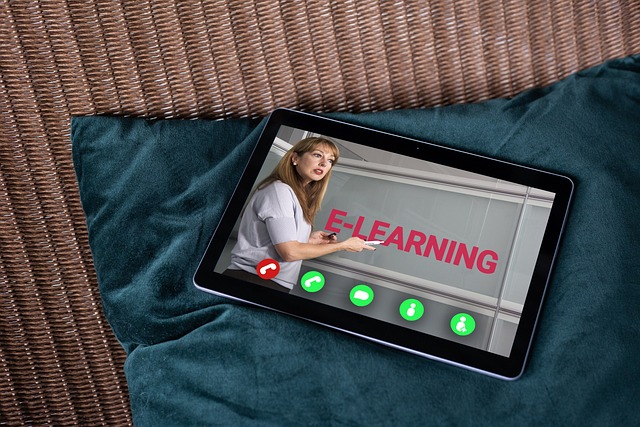In today's digital age, healthcare professionals increasingly rely on online platforms, making robust online security crucial to protect sensitive patient data from cyberattacks. Private Internet Access (PIA) is a leading VPN service that prioritizes privacy and security for medical professionals, encrypting data transmission and masking IP addresses to ensure anonymous browsing, especially during remote access or global communication. PIA also facilitates secure online transactions for homeowners and real estate investors, enhancing safety in digital interactions. Implementing PIA in global medical practices requires strategic steps: assessing current security measures, encrypting patient information, selecting a reliable service, staff training, integrating with EHRs, and securing non-medical activities like online shopping.
In today’s digital era, medical professionals worldwide face an increasing need for secure online access. As remote work becomes the norm, protecting sensitive patient data during virtual consultations and data transfers is paramount. Private Internet Access (PIA), a robust VPN service, offers a game-changer solution. This article explores the growing importance of online security in healthcare, dissects PIA’s benefits, and provides a step-by-step guide for global adoption, ensuring secure online shopping experiences for homeowners and real estate investors alike.
- The Growing Need for Online Security in Healthcare
- Understanding Private Internet Access (PIA) and its Benefits
- How PIA Protects Medical Professionals During Remote Work
- Implementing PIA: A Step-by-Step Guide for Global Adoption
The Growing Need for Online Security in Healthcare

In today’s digital era, healthcare professionals are increasingly reliant on online platforms for patient record management, remote consultations, and secure communication. This shift has brought to light a growing need for robust online security in healthcare. With sensitive patient data being exchanged electronically, the risk of cyberattacks and data breaches is on the rise. Just as homeowners and real estate investors prioritize secure online shopping to protect their financial information, medical professionals must also ensure the confidentiality and integrity of patient data.
The integration of technology in healthcare has created a complex digital landscape where various devices and networks are connected. This interconnectedness expands the potential attack vectors for malicious actors. As such, it’s crucial for healthcare providers to adopt secure practices that safeguard patient information, maintain compliance with privacy regulations (such as HIPAA), and foster trust among their patients.
Understanding Private Internet Access (PIA) and its Benefits

Private Internet Access (PIA) is a leading VPN service designed to protect users’ online privacy and security. In today’s digital age, medical professionals face unique challenges when it comes to securing their sensitive data while browsing the internet. PIA offers a robust solution by providing an encrypted connection, allowing doctors, nurses, and researchers to access resources securely from anywhere in the world. This is particularly beneficial for those who engage in remote work or require secure online shopping platforms for homeownership and real estate investments.
By masking IP addresses and encrypting data transmission, PIA ensures that medical professionals can browse anonymously, protecting their patients’ records and personal information. This level of security is crucial when accessing confidential files or participating in online discussions about sensitive healthcare topics. Moreover, PIA enables seamless access to global resources, enabling professionals to stay updated with the latest research and connect with colleagues internationally, fostering collaboration and knowledge-sharing practices.
How PIA Protects Medical Professionals During Remote Work

Private Internet Access (PIA) plays a pivotal role in safeguarding medical professionals during remote work, an increasingly common scenario driven by today’s digital era. By offering robust encryption and secure network connections, PIA ensures that sensitive patient data remains confidential even when accessed from public or untrusted networks. This is particularly crucial for professionals conducting virtual consultations, reviewing medical records online, or participating in secure messaging platforms.
Moreover, PIA facilitates a secure online shopping experience for those involved in real estate, enabling safe transactions and communications without compromising privacy. Medical professionals can confidently manage administrative tasks, conduct remote patient monitoring, or participate in online educational sessions without fear of data breaches or cyber threats. This dual benefit underscores PIA’s value as a reliable tool for medical practitioners navigating the digital landscape while maintaining patient confidentiality.
Implementing PIA: A Step-by-Step Guide for Global Adoption

Implementing Private Internet Access (PIA) across global medical practices involves a strategic, step-by-step approach to ensure widespread adoption and maximum benefits for professionals and patients alike. Firstly, healthcare organizations should assess their current online security measures and identify areas where PIA can fill gaps, especially regarding secure communication and data transfer, which is paramount in the medical field. This includes encrypting sensitive patient information during transmission and storage to protect against unauthorized access.
Next, select a reliable PIA service that aligns with your institution’s needs, considering factors like scalability for international usage, robust encryption protocols, and user-friendly interfaces for seamless integration into existing workflows. Once chosen, facilitate staff training on the new system to ensure comfortable and effective adoption. Implement PIA across all devices used in daily operations, including laptops, tablets, and smartphones, establishing a uniform security framework. Additionally, integrate PIA with other essential tools like Electronic Health Records (EHRs) for secure data exchange, enhancing the overall patient care experience while maintaining the highest levels of privacy and security, even when conducting online shopping for medical supplies or real estate investments.
Private Internet Access (PIA) has emerged as an indispensable tool for medical professionals worldwide, ensuring secure online interactions during remote work. By implementing PIA, healthcare providers can protect sensitive patient data, maintain compliance with privacy regulations, and enjoy the same level of security they’d have in a physical office. This global adoption is not just a trend but a necessary step towards a safer digital landscape for both medical professionals and their patients, especially considering the increasing importance of secure online shopping for homeowners and real estate investors. With PIA, the future of healthcare looks more connected and secure than ever before.
